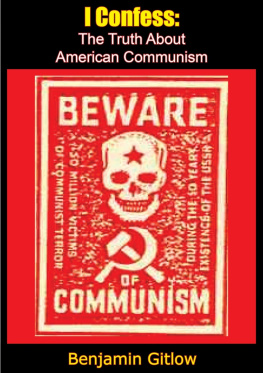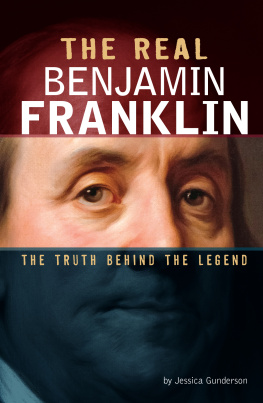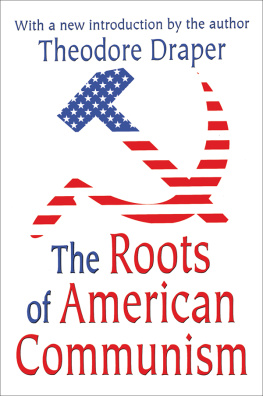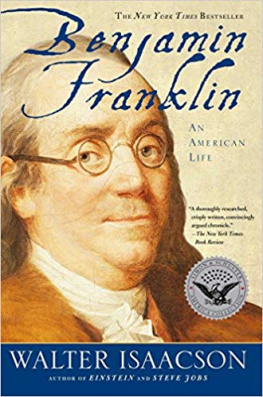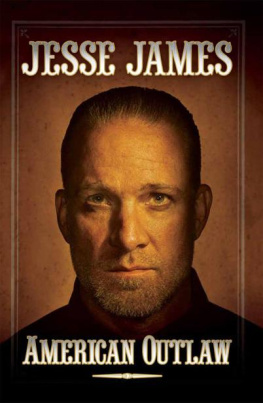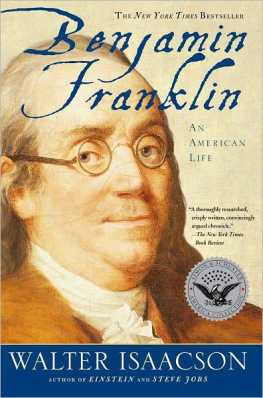This edition is published by Muriwai Books www.pp-publishing.com
To join our mailing list for new titles or for issues with our books muriwaibooks@gmail.com
Or on Facebook
Text originally published in 1940 under the same title.
Muriwai Books 2017, all rights reserved. No part of this publication may be reproduced, stored in a retrieval system or transmitted by any means, electrical, mechanical or otherwise without the written permission of the copyright holder.
Publishers Note
Although in most cases we have retained the Authors original spelling and grammar to authentically reproduce the work of the Author and the original intent of such material, some additional notes and clarifications have been added for the modern readers benefit.
We have also made every effort to include all maps and illustrations of the original edition the limitations of formatting do not allow of including larger maps, we will upload as many of these maps as possible.
I CONFESS
THE TRUTH ABOUT AMERICAN COMMUNISM
BY
BENJAMIN GITLOW
WITH AN INTRODUCTION BY
MAX EASTMAN
TABLE OF CONTENTS
Contents
TABLE OF CONTENTS
INTRODUCTIONBY MAX EASTMAN
THIS book is a faithful and, resolutely candid account from the insideand what is more important, from the topof a vital phase of recent American history. The history is secret, and might well have remained so but for the extraordinary poise and courage of this man, Ben Gitlow, and his ultimate recovery of clear vision and unmixed devotion to his ideals. A thousand congressional investigations could not expose the facts exposed in this book. A thousand research experts, convinced of them, could not make them convincing. The work of the Communist Party in the United States has involved a series of fanatical crimes, not only against American law or American ism, but against the partys own principles and idealsagainst the working class. Nothing less than a confession by one of those guilty of leadership in these crimes of insane zealotry could adequately reveal them.
In every case where the author describes an event or situation with which I had personal contactand that means a good many both here and in Moscowhis statement of the facts, in so far as that can be separated from political or personal feelings toward them, is unassailable. In a number of cases he lays bare the essentials more objectively than I could. His book is true history. Every judicious person from the inside to the remote fringes of the Communist movement, whether he says so or not, will know that it is. Personally I failed to detect on any vital issue the dominance of any motive other than that of unmitigated truth-telling.
Of course Ben Gitlows judgments of men and their motives are his own, and they must be. Human motives are rarely single, and I am not sure the author has always borne in mind that his opponents, like him, were moved in their factional maneuvers, and their dirty trickery in general, by super-zealotry as well as by the mere thirst of power. To this I must add, however, that his depiction of persons in the movement who happen to have been more or less intimately known to me, is often startlingly perspicacious. I could endorse a surprisingly large number of his characterizations. They will be read by thoughtful people in touch with the movement, even when not with endorsement, nevertheless with a sharp sense of their honesty and acuteness.
Thanks to his native gift, and guiding principle, of truthfulness, Gitlow has written an historical and political work of vital importance, and one which will probably never be replaced. No one studying American reflections of the Russian revolutionas such reflections of the French revolution are still elaborately studiedwill ever be able to ignore this book.
MAX EASTMAN.
August 8, 1939
PRELUDEA REBEL IS BORN
IN the spring of 1891 two young Russian Jewish men rented for ten dollars a month the ground floor and basement of a two-story frame dwelling in Elizabethport, New Jersey, a village near the southern shores of Newark Bay and on the eastern outskirts of Elizabeth. The thin fellow with the shocks of wavy black hair was my father; the other, short, stocky and blond, my fathers boyhood friend, Morris Rippenbein. Several days later (I was told it was a Saturday morning) a strange group of foreigners was the object of curiosity to the Americanized Scotch, Irish, English and German settlers as it came to occupy the premises. Rippenbein and his young wife, who had recently arrived from Russia, together with my father, mother and older brother, Sam, two years old, made up the tired hungry group. A can of salmon was the only meal that day for the grown-ups. Sam was given a roll and butter which my mother had brought with her from New York. The rent and the rooms were divided equally between the two families. My parents occupied the one large room on the ground floor, Rippenbein and his wife the two smaller rooms. The two basement rooms were shared together, although not in the fall and winter, when they were too damp and cold to be occupied. The place was infested with rats and had no improvements. There was an outhouse in the yard, water was drawn from a well, kerosene lamps furnished the light. My mother liked the place because it was in the country. The air was exhilarating, the bright rays of the sun danced through the windows, and two tall trees majestically stood guard in the front yard. Compared to the dirty tenements of Hester Street with their dark rooms and the noise, crowds, dirt and foul odors of the East Side, the Elizabethport place was paradise indeed.
But times were bad and work scarce. My parents found it difficult to pay their five dollars rent each month. My father worked only part time. The family income had to be replenished by my mother working at home. The shirt factory from which she obtained her work was far away. To reach the place my mother had to take a street car and then walk an interminably long road with a large clumsy heavy bundle of shirts. One miserable fall day dark with rain my mother lost her way. Besides the bundle of shirts, she was heavy with child. She arrived at the factory when it was dusk, drenched to the skin. The forelady saw her condition; when paying her off, she refused to give her any more work until the thing was over. My mother begged for the work, said she needed it badly, explained that her condition did not interfere with her doing it. But her pleading was of no avail. Mother returned home tired, despondent and despairing of the future. To make matters worse, the Rippenbeins moved away, leaving my destitute parents with the full burden of the rent. Worrying, her mind constantly on the new life that was about to be born, mother helped my father to find tenants for the rooms left vacant by the Rippenbeins: these went to an elderly woman and her daughter. Into this world of tyrannical petty worries I was born about an hour after noon of Tuesday, December twenty-second, 1891.
No physician officiated at my delivery. I was pulled into the one-room world of my family by a German midwife in her middle forties, who received six dollars in cash of the recently-collected sublet money for her services. My father came home from the factory at two oclock in the afternoon. He did the shopping and house work until late in the evening. When he went to bed he soon fell fast asleep, exhausted from the days work and the excitement of the event. My mother fell asleep later. About midnight I awoke and kept crying incessantly. Weak as she was, scarcely twelve hours after delivery, instead of awakening my tired father, mother got up to look at me herself. My face was covered with soot. The kerosene lamp was ablaze. A terrible tragedy was impending. But my mother did not become panicky. She picked me up in her arms and awakened the elderly lady who shared the rooms with us. The latter awakened my father, then carried Sam, who had slept soundly through it all, out of the house. After my father had put the fire out and tidied up the room, my mother returned. Physically strong and firm in character, mother sent my father right back to bed, because he had to be up early in the morning to go to work, herself emptied the ashes from the cold stove, made a new fire, put a large kettle of water on, bathed my brother and me and put us to bed, washed all the linen accumulated as a result of the confinement, hung the clothes up to dry, and only then retired for the night. The very next day, the day after the confinement, my mother was out of bed, attending to her domestic duties as if nothing had happened. In the one large room that was our home nothing remained to remind one that a day before a baby was born.


